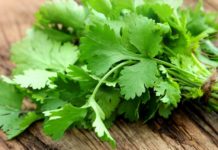
Muscle pain, known as “myalgia,” can be a symptom of many different conditions in the body. Sometimes it’s short lived, as a result of overuse. However, most of my clients are concerned with chronic muscle aches and pains resulting from something more significant.
Sorting out the cause of sore muscles often requires a keen understanding of the body and a thorough evaluation of several different body systems. In most cases, though, natural symptom relief can easily be achieved by boosting certain vitamins, minerals and amino acids.
HOW’S YOUR ALIGNMENT?
Structure can play a big part in chronic muscle pain, especially when muscle soreness occurs only on one side or is localized to a specific area of the body. A structural analysis may be done by a knowledgeable medical professional, involving body measurements to determine ways to improve overall posture. Repetitive strain on a certain muscle group from improper posture can result in irritation. This irritation can be prevented when the body is in better alignment.
TIME TO EVALUATE
Chronic muscle pain in both sides of the body or in more than a few muscle groups is likely an indication of more
than misalignment. People who have chronic muscle soreness may need a more thorough evaluation to determine the cause of their discomfort. Evaluations should be performed by a professional who understands functional medicine; they’ll look for immunological and/or hormonal causes of chronic muscle pain.
EAT YOUR VEGETABLES
Muscles are one of the body’s largest energy-producing organs. When energy production cannot happen efficiently, metabolic waste products can build up, leading to inflammation and pain. Muscles also need a large amount of blood flow to keep up with waste elimination and oxygen requirements. Protein and vegetables have the macronutrients that our bodies need to support circulation and muscle function.
SUGGESTED SUPPLEMENTS
Breaking down proteins and extracting minerals requires a healthy digestive system and adequate stomach acid production. When supplements support a noticeable reduction in muscle pain in the presence of a healthy diet, it may be that you are not breaking down and absorbing your nutrients properly. In cases like this, a trial of digestive enzymes and stomach acid replacement, in the form of betaine hydrochloric acid, may be worth looking into.
Some specific key nutrients involved in muscle repair and function are the minerals magnesium, calcium, potassium and zinc. All the B vitamins, along with vitamins C, D, E and co-enzyme Q10 (also known as ubiquinone), are also important in supporting muscle health.
Specific amino acids that help with circulation and improve muscle function and repair are taurine, glutamine, arginine, carnitine, methionine, creatine and the branched chain amino acids, leucine, isoleucine and valine.
Finally, a special sugar called d-ribose may be helpful for people with chronic muscle pain and energy concerns, as it helps produce muscle energy.
NUTRIENT SUPPLEMENTAL DOSE AND USE TARGET RESPONSE NATURAL SOURCES AND CONCERNS
Magnesium 300-600 mg per day in divided doses away from calcium and food Dramatic relief of muscle pain and cramps in almost all cases Vegetables
Caution: may cause diarrhea
Potassium 1 mg per day Improves muscle cramping when deficient Vegetables, nuts and meat
Calcium 500 mg per day away from magnesium May help relieve cramping in some people Vegetables and nuts
Taurine 1,000-3,000 mg per day away from food May relieve muscle cramping in some people Meat and seafood
L-Carnitine 500-2,000 mg per day away from food May help with certain types of muscle pain Meat and seafood
B vitamins Vitamin B complex 100
with food Found to relieve muscle cramping in some people Meat, grains and nutritional yeast
Vitamin D3 2,000-5,000 IU per day if deficient May improve muscle weakness and pain Fish and seafood
Arginine 3,000-6,000 mg per day away from food Improves circulation to muscles Meat, nuts and grains












